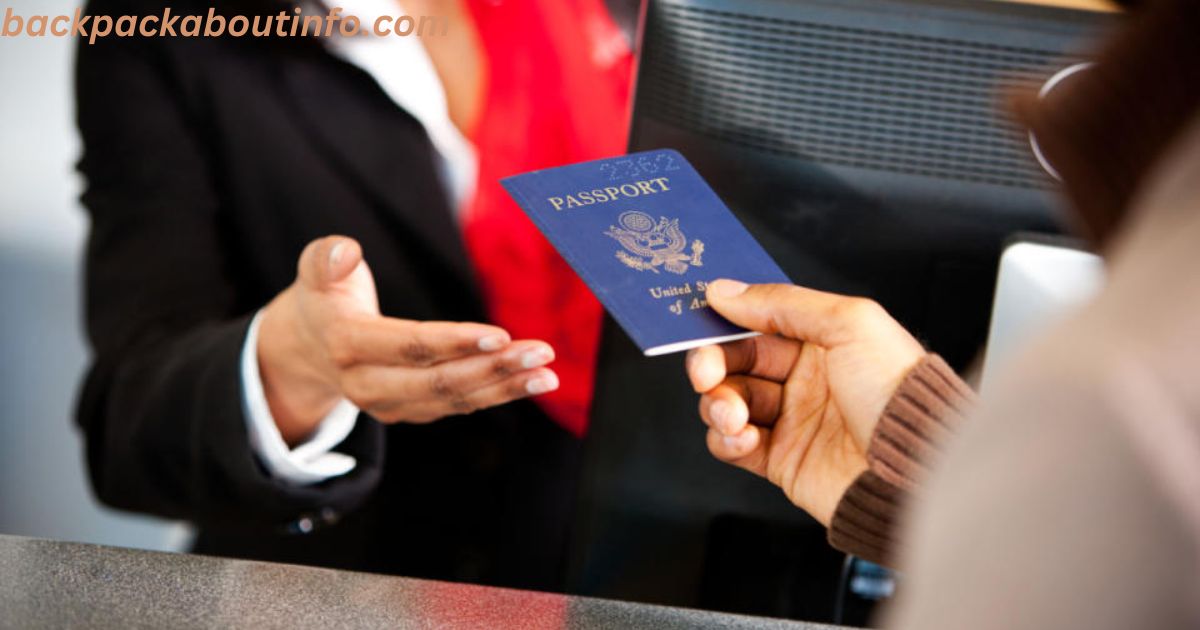A DUI (Driving Under the Influence) does not show up directly on your passport. However, a DUI conviction can still affect your travel plans. Some countries may have strict entry requirements and refuse to let you in if you have a criminal record. Additionally, if you are on probation or parole, or have other legal issues, you may face restrictions when traveling.
While you can still obtain a passport after a DUI, these legal complications can limit where and when you travel. This article will explain how a DUI can affect your ability to get a passport and travel to other countries.
DUIs and Your Passport
A DUI doesn’t actually show up on your passport. Your little blue book doesn’t come with a built-in rap sheet. However, don’t break out the champagne just yet. While your passport won’t rat you out, a DUI can still cause some serious headaches when it comes to international travel.
Obtaining a Passport with a DUI Conviction
Eligibility
Believe it or not, you can still obtain a passport even if you’ve got a DUI conviction under your belt. The passport application process doesn’t typically involve a deep dive into your criminal record. So, if you’re itching to apply for a passport, a DUI alone won’t slam that door shut.
Restrictions
Now, before you start packing your bags, let’s pump the brakes a bit. While getting a passport might be doable, using it could be a whole other ball game. Depending on your situation, you might face some travel restrictions that could put a damper on your globetrotting plans.
Detailed Restrictions
Court Orders
Sometimes, the court might throw a curveball your way. If a judge slaps you with a court ordered travel ban, you’re pretty much grounded until further notice. It’s like being sent to your room as a kid, but on a much larger scale.
Probation or Parole
If you’re on probation or parole, you might need to get a permission slip before jetting off to exotic locales. Your probation officer isn’t trying to ruin your fun they’re just doing their job. Violating these conditions could land you in hot water, so it’s best to play by the rules.
Outstanding Legal Issues
Got some unfinished business with the law? That could throw a monkey wrench into your travel plans. Unpaid fines, child support arrears, or other legal obligations might lead to a passport denial or even passport revocation. It’s like trying to leave a restaurant without paying your bill it just doesn’t fly.
Traveling Internationally with a DUI
Country-Specific Restrictions
When it comes to international travel with a DUI on your record, it’s not one size fits all. Different countries have different entry policies, and some are stricter than others. Let’s take a whirlwind tour of how some popular destinations handle travelers with a DUI in their past.
Canada
Our neighbors to the north take DUIs pretty seriously. Canada’s entry requirements for folks with a DUI can be tougher than a hockey player’s slapshot. You might need a Temporary Resident Permit or go through a Criminal Rehabilitation process to cross the border.
Mexico
Mexico’s approach is a bit more laid back, like a siesta on the beach. While they don’t have specific DUI related entry restrictions, a recent or serious offense might raise some eyebrows at the border.
United Arab Emirates
The UAE doesn’t mess around when it comes to alcohol related offenses. Their entry policies regarding DUIs are stricter than a school principal on the first day of class. It’s best to do your homework before planning a trip to Dubai.
Japan
Japan’s stance on DUIs is about as rigid as their traditional tea ceremony. While they don’t explicitly bar entry for DUI offenders, a conviction could potentially impact your travel plans.
China
China’s visa requirements can be as complex as their Great Wall is long. A DUI on your record might not automatically disqualify you, but it could add an extra layer of scrutiny to your application.
South Africa
South Africa’s approach to travelers with DUIs is about as varied as their wildlife. Recent changes in their entry policies mean it’s crucial to check the latest requirements before booking your safari.
Countries with Lenient Policies
Not all hope is lost for the wanderlust stricken DUI offender. Some countries are more forgiving, like that understanding teacher who gave you an extension on your homework. The European Union, for instance, doesn’t typically bar entry based solely on a DUI conviction.
Legal Obligations and Travel Restrictions
Probation and Parole Restrictions
If you’re on probation or parole, your travel plans might need to go through more approvals than a new construction project. You’ll likely need travel approval from your probation officer, and there might be limits on how long you can be out of the country.
Court-Ordered Restrictions
Sometimes, the court might clip your wings as part of your sentence. This could range from a temporary passport surrender to outright travel bans. It’s like being grounded, but on an international scale.
Outstanding Legal Issues
Got some unfinished business with Lady Justice? Outstanding legal matters like unpaid DUI penalties or pending charges could throw a wrench in your travel gears. It’s best to clear these up before trying to clear customs.
Ignition Interlock Devices (IID)
If you’re required to use an IID, international travel can get tricky. It’s like trying to take your house keys with you, but your house is your car, and the keys are a breathalyzer. Some countries might not even allow these devices, so check before you go.
Flight Risk Considerations
Multiple DUIs might make you look like a flight risk in the eyes of the law. This could lead to increased scrutiny at borders, kind of like being under a magnifying glass held by customs officials.
Professional License Implications
For some professions, a DUI can have far-reaching consequences. Commercial drivers and pilots, for instance, might face additional hurdles when it comes to international travel for work.
FAQ,s
Will my DUI show up when I go through customs ?
It varies by country and their agreements on sharing information with the U.S.
Can I get a DUI expunged to make travel easier ?
Possibly, but it depends on your state’s laws and the specifics of your case.
How long does a DUI affect international travel ?
It varies by country, but many consider DUIs from the past 5-10 years.
Conclusion
A DUI does not show up directly on your passport, but it can still cause problems when you want to travel. Some countries have strict rules for people with a DUI conviction, and you may face travel restrictions because of your legal issues.
While you can usually still get a passport, it is important to handle any legal problems before traveling. Always check the entry rules of the country you want to visit and talk to a legal expert if needed.











